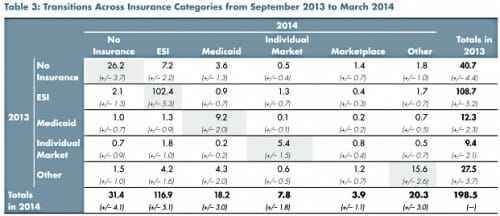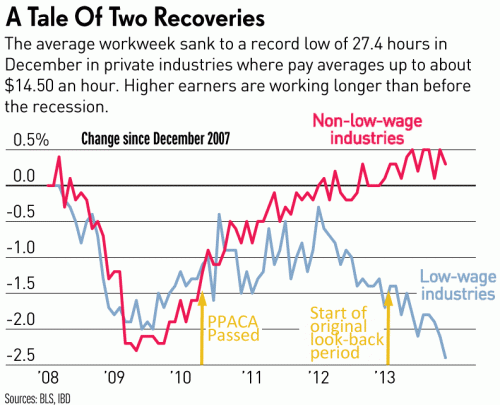Sorry, this is one of those posts where I am still struggling to figure an issue out, so bear with me if we wander around a bit and the ideas are a bit unfinished.
Kevin Drum and other progressives have been bending over backwards to argue that the now three year delay in implementing PPACA standards for private insurance policies is no big deal.
Really? The PPACA is likely, for Progressives, to be the most important piece of legislation passed during this Administration. Hell, based on the discussion when it was passed, for many it is likely the most important piece of legislation passed in the last three or four decades. And when Republicans suggested delaying these same rules and mandates, e.g. during the government shutdown, they freaked, arguing that people should not have to go another day with their old crappy health care policies.
But now they just roll over and say, yeah, ho hum, this thing that everyone supposedly wanted is a political liability so its fine to delay it, no big deal.
If this were a signature piece of libertarian legislation (yeah, I know its hard to imagine such a thing) that was not being implemented by somebody I voted for and supported, I would be pissed. I would be raking the President over the coals.
This difference in outlook may be why the Republican leadership hates the Tea Party. The Tea Party gets pissed when folks they elect punt on the ideological goals they got elected to pursue. They have no tribal loyalty, only loyalty to a set of policy goals. The key marker in fact of many groups now disparagingly called "extremists" is that they do not blindly support "their guy" in office when "their guy" sells out on the things they want.
I have friends I like and respect -- smart and worldly people -- who are involved in a series of activities to promote political moderation. What I have written in this post is the core of my fear about moderation -- that in real life calls for moderation are actually calls for loyalty to maintaining our current two major parties (and keeping current incumbents in office) over ideas and principles.
Which leads me to an honest question that many of you may take as insulting -- can one be a principled moderate? I am honestly undecided on this. But note that by moderate I do not mean "someone who is neither Republican or Democrat," because I fit that description and most would call me pretty extreme. So "fiscally conservative and socially liberal" is not in my mind inherently "moderate". That is a non-moderate ideological position that is sometimes called "moderate" because it is a mix of Republican and Democrat positions. But I would argue that anyone striving to intellectual consistency cannot be a Republican or Democrat because neither have an internally consistent ideology, and in fact their ideology tends to flip back and forth on certain issues (look at how Republican and Democrat ideology on Presidential power, for example, or drone strikes changes depending on whose guy is in the Oval Office).
Moderates in my mind are folks willing to, or even believe it is superior to, take average positions, eg. "the PPACA just went too far and we should have had a less-far-reaching compromise" or "free trade agreements go too far we need a mix of free trade and protectionism". They value compromise and legislative action (ie passing lots of laws in a fluid and timely manner) over holding firm on particular ideological goals. I guess the most fair way to put it by this definition is they value consensus and projecting a sense of agreement and teamwork over any individual policy goal.
Postscript: One other potential definition of "moderate": One could argue that in actual use by politicians and pundits, "moderate" effectively means "one who agrees with me" and "extremist" means "people who disagree with me." The real solution here may be to accept that "moderate" is an inherently broken word and stop using it.
Update: There are areas where I suppose I am a moderate. For example, I think that making definitive statements about what "science" has been "settled" in the realm of complex systems is insane. This is particularly true in economics. Many findings in economics, if one were honest, are equivocal or boil down to "it depends." The Left is insanely disingenuous to claim that the science is settled that minimum wage increases don't affect employment. But it is equally wrong to say that minimum wage increases always have a large effect on unemployment. For one thing, almost no one (percentage wise) actually makes the minimum wage so we are talking about changes in the first place that affect only a couple of percent of the workforce, and may be mitigated (or exacerbated) by other simultaneous trends in the economy. So of course their impact may not be large (in the same way that regulations on left-handed Eskimo Fortran programmers might not have much of an impact on the larger economy).
We have gotten into this bizarre situation that the science is suddenly always settled about everything, where it would be safer to argue that given the complexity of the systems involved the science can't be settled. I liked this bit I read the other day in the Federalist
One of the more amusing threads that runs through the conversation among the online left is the viewpoint that the science is settled in every arena, and settled in their favor. The data backs the leftward view, and if it doesn’t, there must be a flaw in the data, or in the scientist, or secret Koch-backed dollars behind the research. This bit of hubris leads to saying obviously untrue things – like “every economist from the left and right†says the stimulus has created or saved at least two million jobs. Or that there’s “no solid evidence†that boosting the minimum wage harms jobs. Of course the media knows that these aren’t true, but they largely give these politicians a pass, because dealing in data and with academic research is their turf.
Folks on the Left who want to blame the Tea Party for the destruction of civil discourse need to look at themselves as well, declaring the science settled on everything and then painting their opponents as anti-science for disagreeing. As I have pointed out before, this sort of epistemology is not science but religion, the appeal to authority backed by charges of heresy for those who disagree.
If I were going to make a political plea, it would not be for moderation but for better more respectful practices in the public discourse.




